Venice Architecture Biennale 2023 curator Lesley Lokko on decolonisation, decarbonisation and diversity
The Ghanaian-Scottish architect, who will curate the 2023 Venice Architecture Biennale, sets out to tackle global issues through her new school in Accra
Tino Chiwariro - Photography
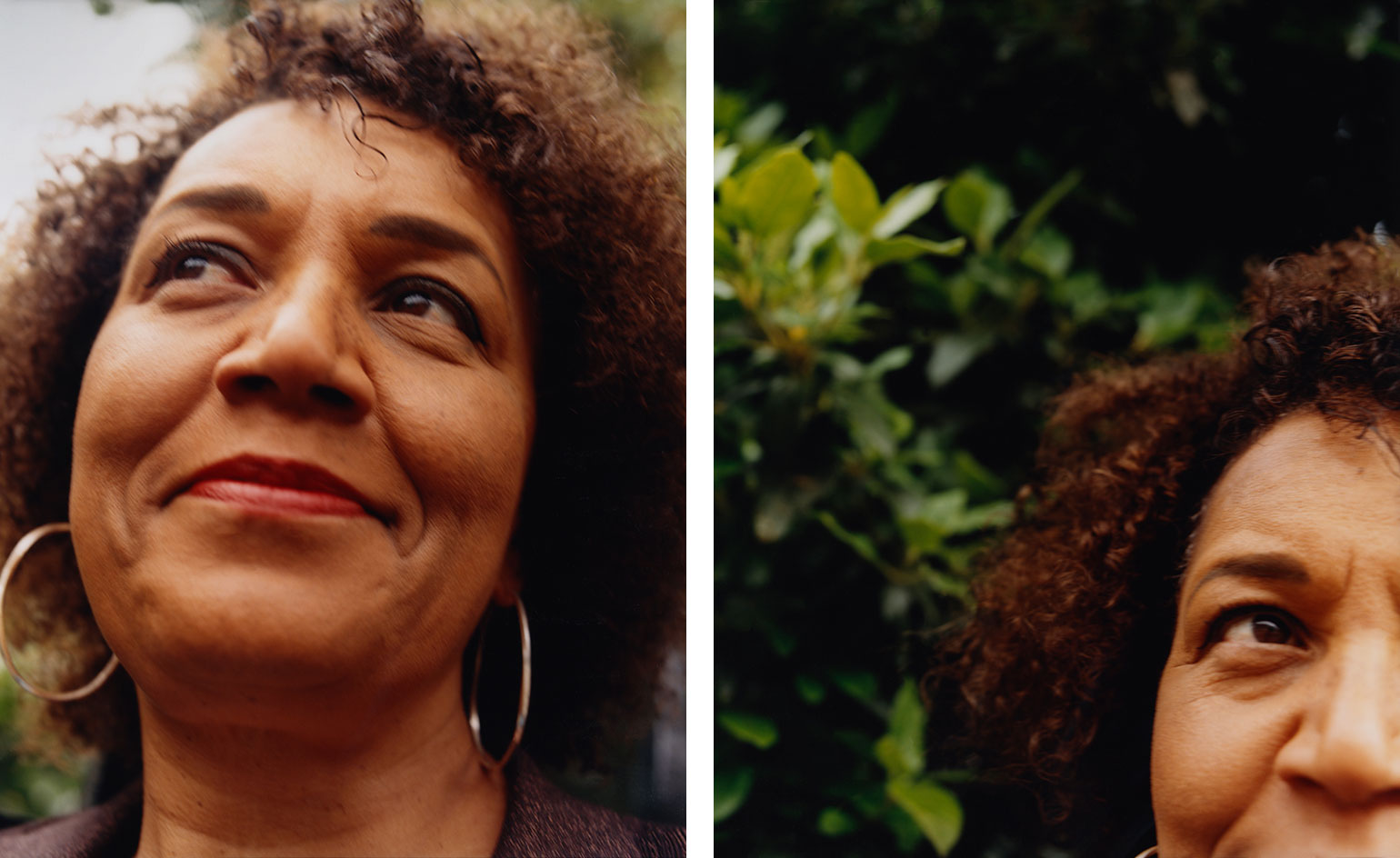
Lesley Lokko is a woman of many hats. She is an architect, having practised both in other studios and her own. She is an academic, having experienced the teaching, research and management side of the sector in a range of higher education institutions worldwide, notably at the University of Johannesburg’s Graduate School of Architecture (GSA), which she established in 2015; at the City College of New York, where she was dean of the Bernard and Anne Spitzer School of Architecture until leaving seemingly abruptly during the pandemic (more on this later); and now at Accra’s African Futures Institute, a new architecture research institute and school, which is currently being set up from scratch. She is also an accomplished fiction writer, with 12 novels under her belt, all of them having not much to do with architecture. ‘Many people are surprised when they read my books,’ she says. ‘They say it’s not what they expected from me at all.’
More recently, she was appointed the curator of the upcoming Venice Architecture Biennale, the industry’s biggest festival, which will launch its next (and 18th) iteration in May 2023. The many faces of Lesley Lokko converge under her endless calm, her hard-working ethos and refreshing attitude to risk-taking – not to mention her finely tuned stance towards the important, timely issues of diversity and inclusion in architecture, as well as the role of African culture and power in the world. All these shine through her multifaceted work in academia and beyond.
‘AFI offers space for creative and critical thought about Africa’s built environment. It’s a place for theory and practice to intermingle and learn from each other. It acknowledges how our past affects our present and engages us to build our future. Critically, with AFI, Lesley Lokko is not only rethinking how we build and design, but she’s also re-evaluating how we learn and how we teach’ - Ashley Shaw Scott Adjaye, global head of research, Adjaye Associates, and member of AFI Board of Trustees
If ever there was a shaker-upper, a real change-making force, Lokko is it. Lokko was born in Scotland to a Ghanaian father and a Scottish mother and spent her childhood in Ghana. Ghana feels most like home, although she has travelled extensively, and over the years has lived in London, LA, Chicago, Johannesburg and Edinburgh. After completing her studies at the Bartlett School of Architecture in London, she practised and taught, then had her first ‘brush with academic administration’ at the London Metropolitan University, where she was appointed academic leader in strategic planning and external affairs in 2001. Teaching and researching was one thing, but the business and administration side of university life was completely different, she recalls: ‘I thought, I don’t want to do this! But I was very lucky, I had started writing, I got an agent and a book deal, and I left academia. It was a good time to leave and I went into writing fiction for the next 10-15 years.’ But frustrations came up here, too, as Lokko found she couldn’t experiment. ‘I felt pigeonholed and, after some time, an opening came up and I went back to academia in 2014, straight into being an associate professor in South Africa.’
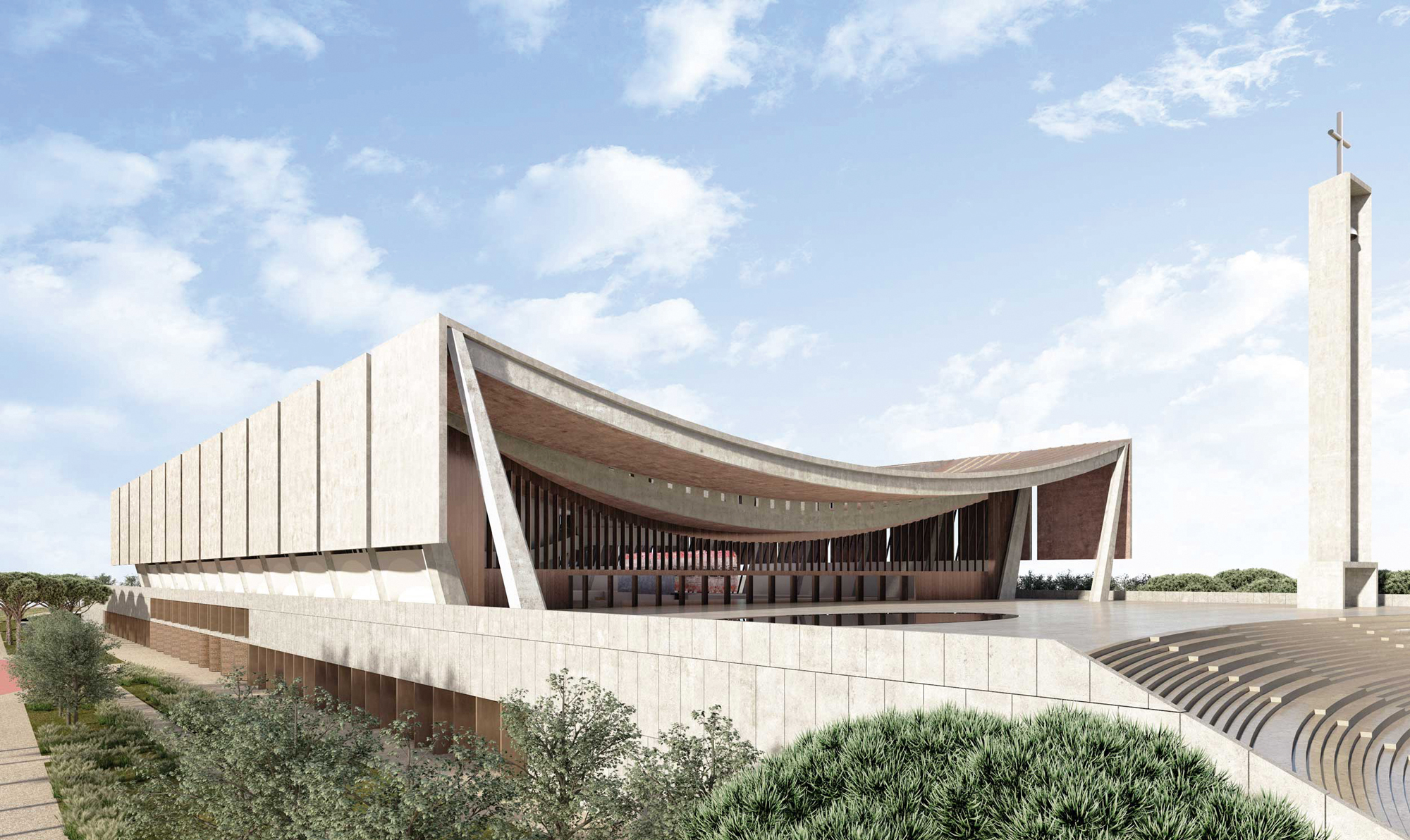
Render of Ghana National Cathedral, Accra, by Adjaye Associates
She was excited to start her role at the University of Johannesburg. ‘I could put the question of decolonisation at the centre of my work; it seemed to me that the easiest and most expedient way to do it was not to change something from inside, but to start something new – so I started the GSA,’ she explains. Despite administrative challenges, Lokko remembers her time at GSA as a fruitful experience, one that defined her and allowed her to experiment. She was there until 2019, when she was approached by the late Michael Sorkin for the deanship at City College of New York.
Unfortunately, Lokko’s time at City College was blighted by a perfect storm of global events: the pandemic started, the murder of George Floyd prompted widespread protests, and challenges within the school soon reared their head, too. ‘In the US, whenever you have gender, race and labour involved, it’s always against the backdrop of a long history of exploitation,’ she says. The pressures felt insurmountable, which led to her decision to leave after less than a year in the post. But the US’ loss became Ghana’s gain, as the tensions at City College led her to realise that her heart was elsewhere. ‘I thought, if I don’t go back to Ghana and set up a school now, I never will. For me, it was very important that I came home. Could I take the experiences of working outside Africa for so long and translate these in a way that would resonate in West Africa?’
‘AFI is a crucial step for architecture and design education on the continent. What really excites me about AFI is the huge potential it presents us with, both in terms of how we can reimagine the built environment, but also as a space where design excellence and perspectives from the Global South can be nurtured and championed’ - Mariam Kamara, founder of Atelier Masomi and member of AFI Board of Trustees
Lokko worked with graphic designer Fred Swart to visualise the school’s identity. Its name – African Futures Institute (AFI) – was established after a walk in Edinburgh, where Lokko came across the Edinburgh Futures Institute, part of the city’s university. ‘I knew I had found my name,’ she recalls. ‘From there, I got some seed funding from the Ford Foundation and the Mellon Foundation, set up some office space [right underneath her home in Accra, which is raised on stilts], found some staff [there are three people employed at the moment] and got to work.’
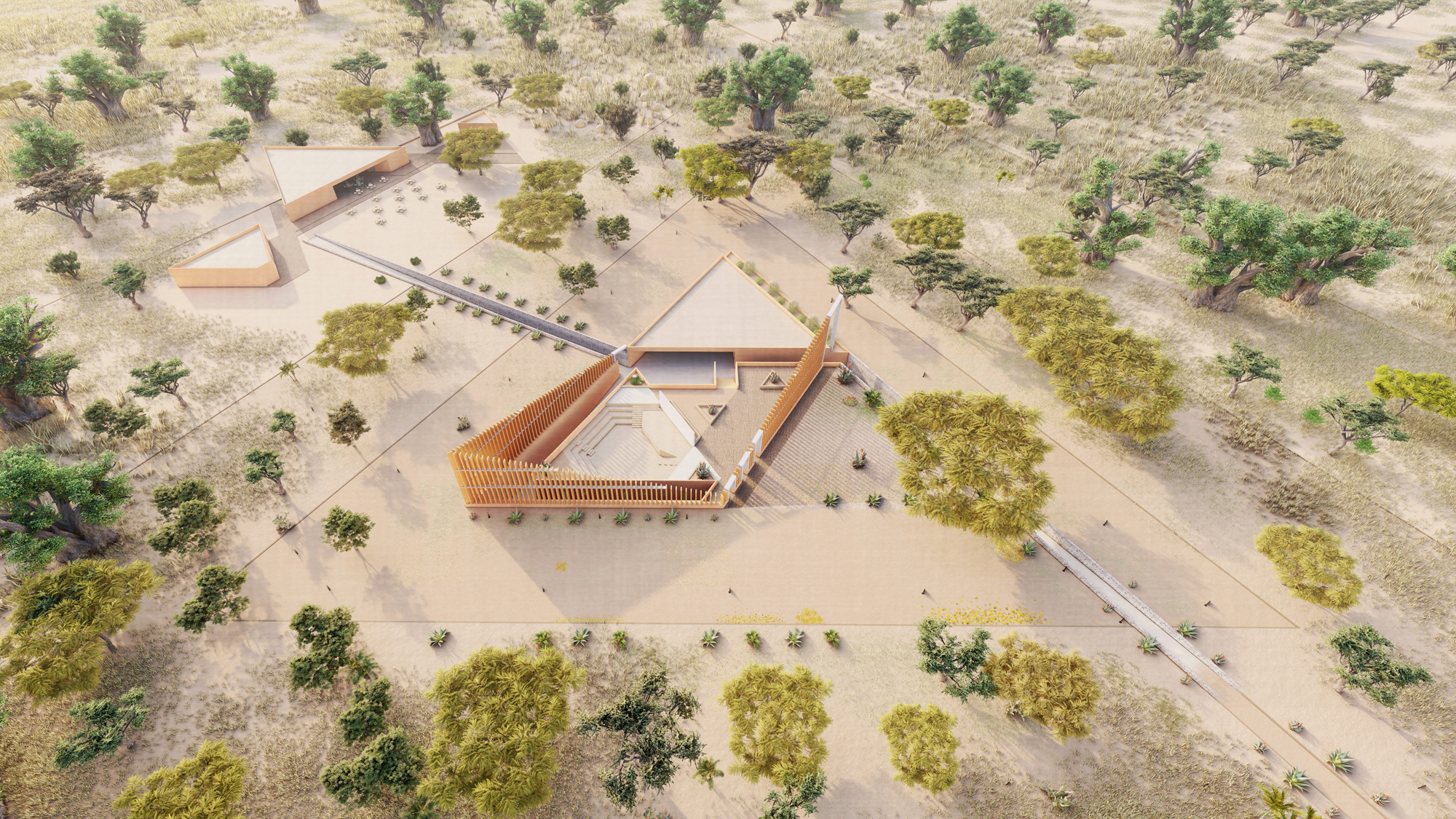
Render of Bët-bi Museum, Senegal, by Atelier Masomi
AFI is a graduate school and will start with events, short courses and workshops in the first year (2023), before unfolding its full curriculum from 2024. Ghana has only one accredited architecture school, and while AFI won’t be immediately accredited (‘I want to keep it that way. I like to spend some time where I don’t have to explain and justify myself all the time,’ she says. ‘This is about imagination, not policy’), it is something Lokko feels the region desperately needs. The school already has a vibrant social media presence and she has pulled together an exciting group of mentors, advisors and associates to help her, including David Adjaye, Ashley Shaw Scott Adjaye (see page 040), Mass Design Group’s Christian Benimana, the RCA’s Thandi Loewenson, and Counterspace’s Sumayya Vally (W*265). When looking for her collaborators, she keeps an open mind – an approach that defines the whole school. ‘I first look for the people I am excited about, the right people,’ she says. ‘Then I fit them in, building the school around them.’
Receive our daily digest of inspiration, escapism and design stories from around the world direct to your inbox.
‘AFI is a space for thinking through, provoking and creating the future of practice and pedagogy of, and for, the continent – manifesting and speaking powerfully from our rich, diverse and hybrid places of difference’ - Sumayya Vally, founder of Counterspace and AFI academic advisor
The school will offer long and short courses for students, as well as for teachers who want to learn more about the issues it will specialise in – diversity, equity and inclusion in the built environment, in particular, innovation and thought leadership from Africa and its Diaspora. Although she stresses that this is not about quotas, she envisions a make-up of 50 per cent students from Ghana, 25 per cent from other African countries, and the remaining 25 per cent from beyond. She wants to keep things accessible and open, and hopes that the wealthier students’ fees will subsidise those who don’t have the means. Some parts will be delivered in person and others will be digital, both theory and practice, and the intention is to accept students not just from an architectural background. ‘Architecture operates a bit like a nation state, always protecting its boundaries. Nine times out of ten, the protection of the discipline is about the exclusion of ‘others’,’ Lokko says. ‘We see this as a school and discipline beyond the nation state – this is about African futures not shaped by geographical boundaries.’
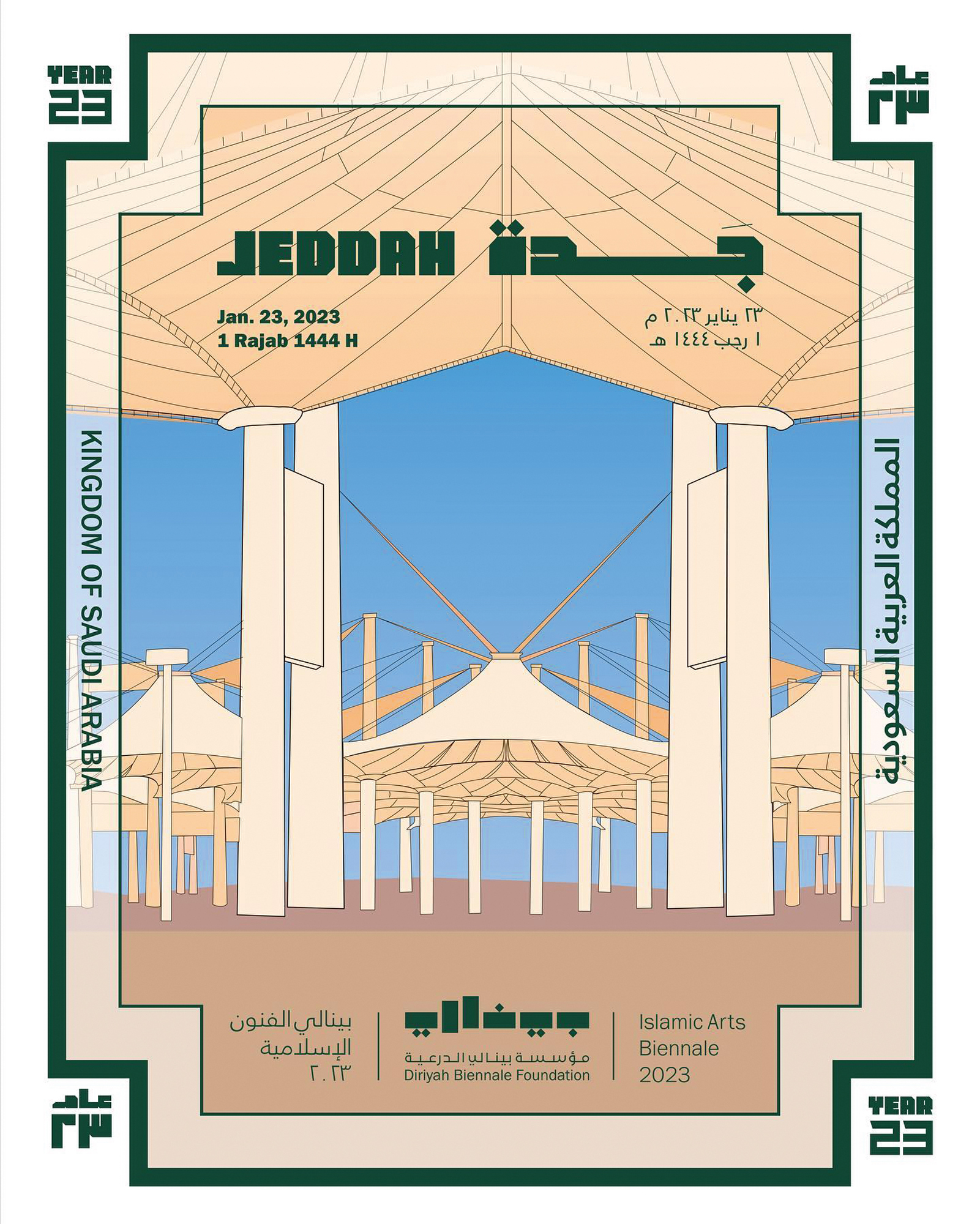
A poster for the inaugural Islamic Arts Biennale, curated by Sumayya Vally and taking place in Jeddah from 23 January- 24 April 2023
AFI won’t initially have a fixed venue, but will be threaded into Accra’s urban fabric, housed in various locations. Lokko hopes to eventually be able to commission a permanent home for it – but that’s far in the future. At the moment, the school is entirely funded by philanthropy. Courses are likely to start in 2024, after the Biennale ends and Lokko has enjoyed a break to recharge.
Meanwhile, Venice will feature heavily in Lokko’s day-to-day for the next year or so. The main exhibition’s theme, titledV‘The Laboratory of the Future’, puts Africa in the spotlight. While this curatorship and AFI happened independently of each other, they tackle similar challenges through Lokko’s key subject areas and passions – how to live in a world of binaries, and the global issues of decolonisation and decarbonisation. ‘Africa is the laboratory of the future,’ Lokko said during a Venice Biennale press conference in May. ‘We are the continent with the world’s youngest population, the fastest urbanisation, growing at a rate of four per cent per year, often at the expense of local ecosystems – so we are at the forefront of climate change, too. Yes, the show will focus on Africa, but we are not only talking about Africa – we use it as a place in order to try and understand everything everywhere. After all, the Biennale itself is a workshop for the future.’
‘AFI represents a new initiative that aims to collaborate with the world from an African perspective – not just to try and find out how we can contribute, but rather how we belong and the reason why great architecture is not complete without African voices’ - Christian Benimana, senior principal and managing director, Mass Design Group, and AFI academic advisor
As to what the future holds, apart from Venice and AFI (‘The school is so much a part of who I am, it’s hard to separate those two, but I hope there’s a kind of productive fusion’), she has another novel underway, with a publisher who allows her to try out new things. ‘It will be a little different to my others,’ she says. The common thread in everything is a strive to drive change in a field that can be slow to do any of those things. ‘The challenge is to work out what the form of an institution is at the same time you try to form it. I think it was Einstein who said that you can’t go around doing the same thing over and over, expecting the same result. That results in madness. You need to be open enough to invent new structures and have enough faith that they will work.’
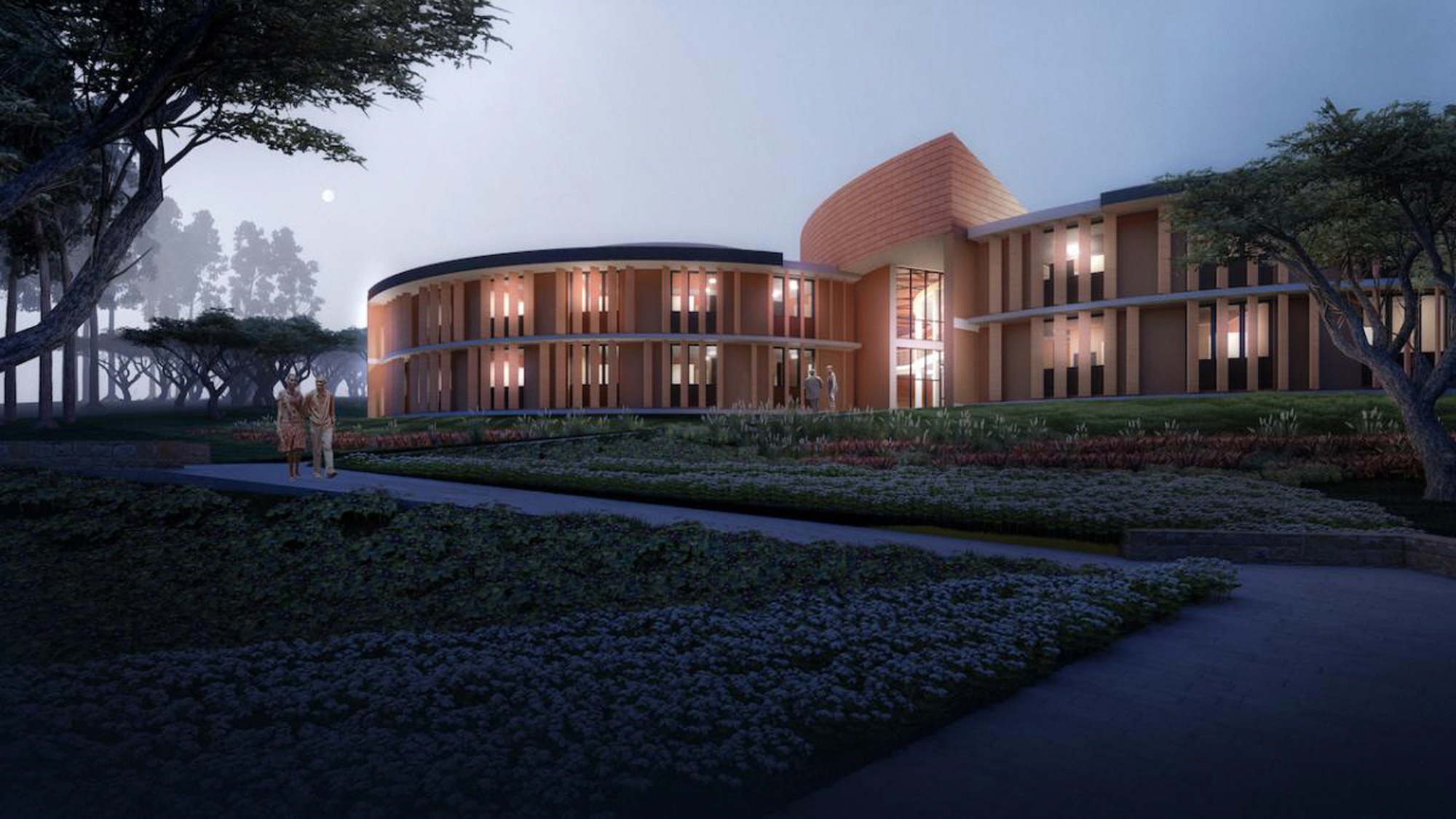
Render of Rwanda Institute for Conservation Agriculture campus, Bugesera, by Mass Design Group
INFORMATION
A version of this article appears in the August 2022 Design for a Better World issue of Wallpaper*, available from in print, on the Wallpaper* app on Apple iOS, and to subscribers of Apple News +. Subscribe to Wallpaper* today
Ellie Stathaki is the Architecture & Environment Director at Wallpaper*. She trained as an architect at the Aristotle University of Thessaloniki in Greece and studied architectural history at the Bartlett in London. Now an established journalist, she has been a member of the Wallpaper* team since 2006, visiting buildings across the globe and interviewing leading architects such as Tadao Ando and Rem Koolhaas. Ellie has also taken part in judging panels, moderated events, curated shows and contributed in books, such as The Contemporary House (Thames & Hudson, 2018), Glenn Sestig Architecture Diary (2020) and House London (2022).
-
 Discover the newest watches as LVMH Watch Week 2026 kicks off in Milan
Discover the newest watches as LVMH Watch Week 2026 kicks off in MilanWatch maisons unveil their 2026 releases in Milan
-
 Mickalene Thomas and Tom Wesselmann consider the female nude in Palm Springs
Mickalene Thomas and Tom Wesselmann consider the female nude in Palm Springs'The Female Form: Tom Wesselmann & Mickalene Thomas from the Collections of Jordan D. Schnitzer and His Family Foundation' places the artists' work in cultural context at Palm Springs Art Museum
-
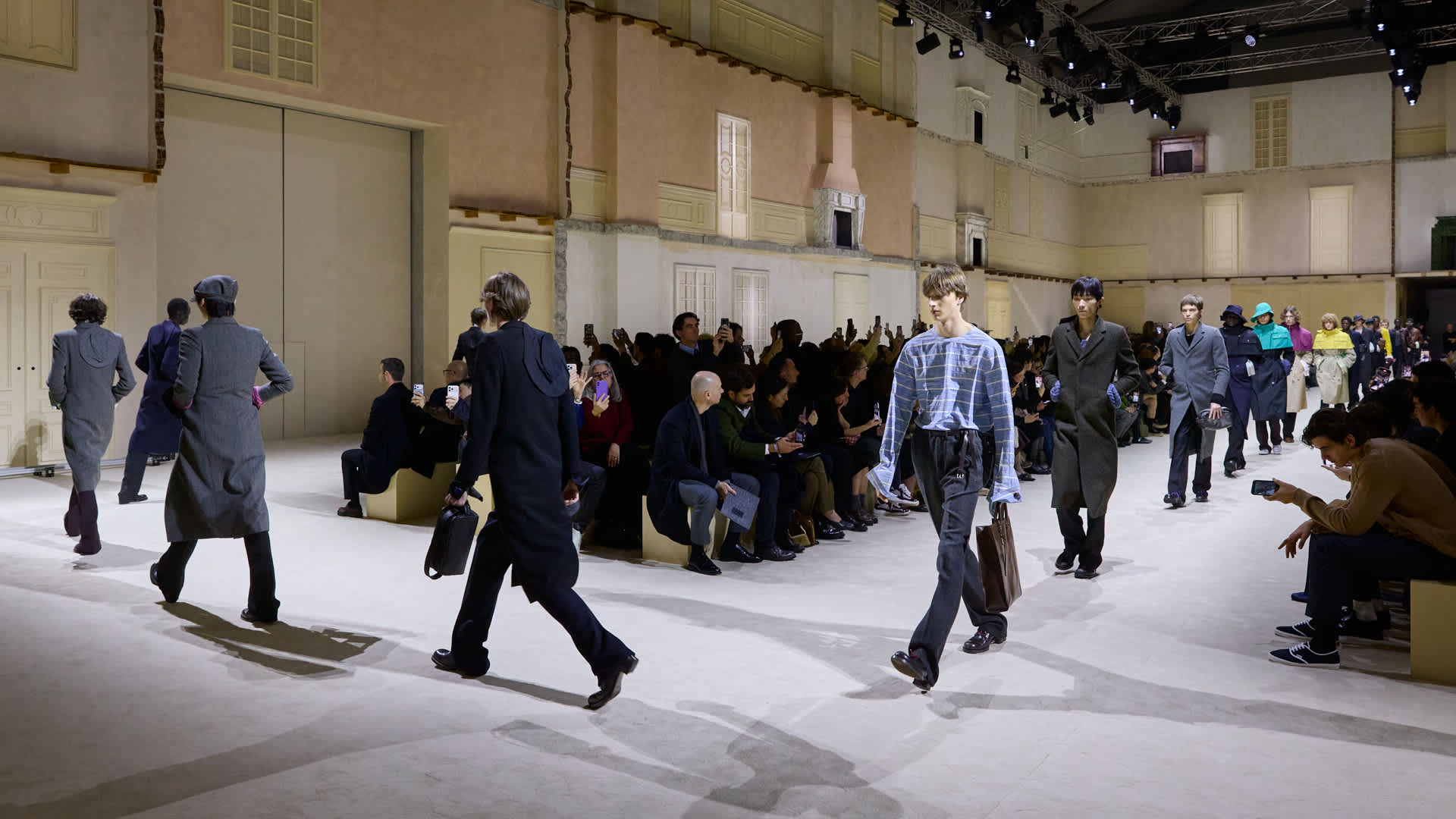 Prada’s A/W 2026 menswear show was about excavating the past to find the future
Prada’s A/W 2026 menswear show was about excavating the past to find the future‘It’s a kind of archaeology,’ said Raf Simons of his and Miuccia Prada’s latest menswear collection, which was presented at Fondazione Prada yesterday in Milan
-
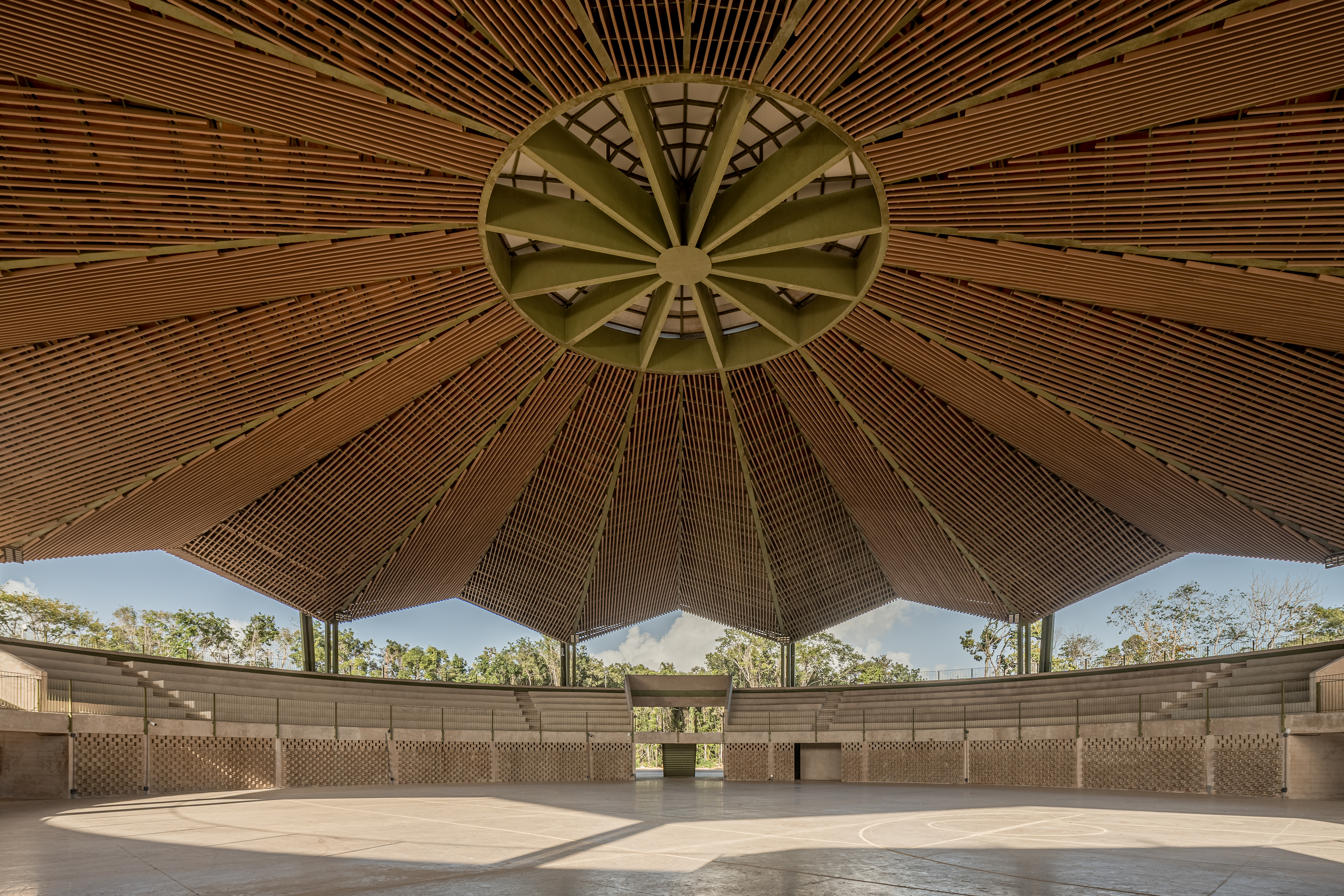 Aidia Studio's mesmerising forms blend biophilia and local craft
Aidia Studio's mesmerising forms blend biophilia and local craftMexican architecture practice Aidia Studio's co-founders, Rolando Rodríguez-Leal and Natalia Wrzask, bring together imaginative ways of building and biophilic references
-
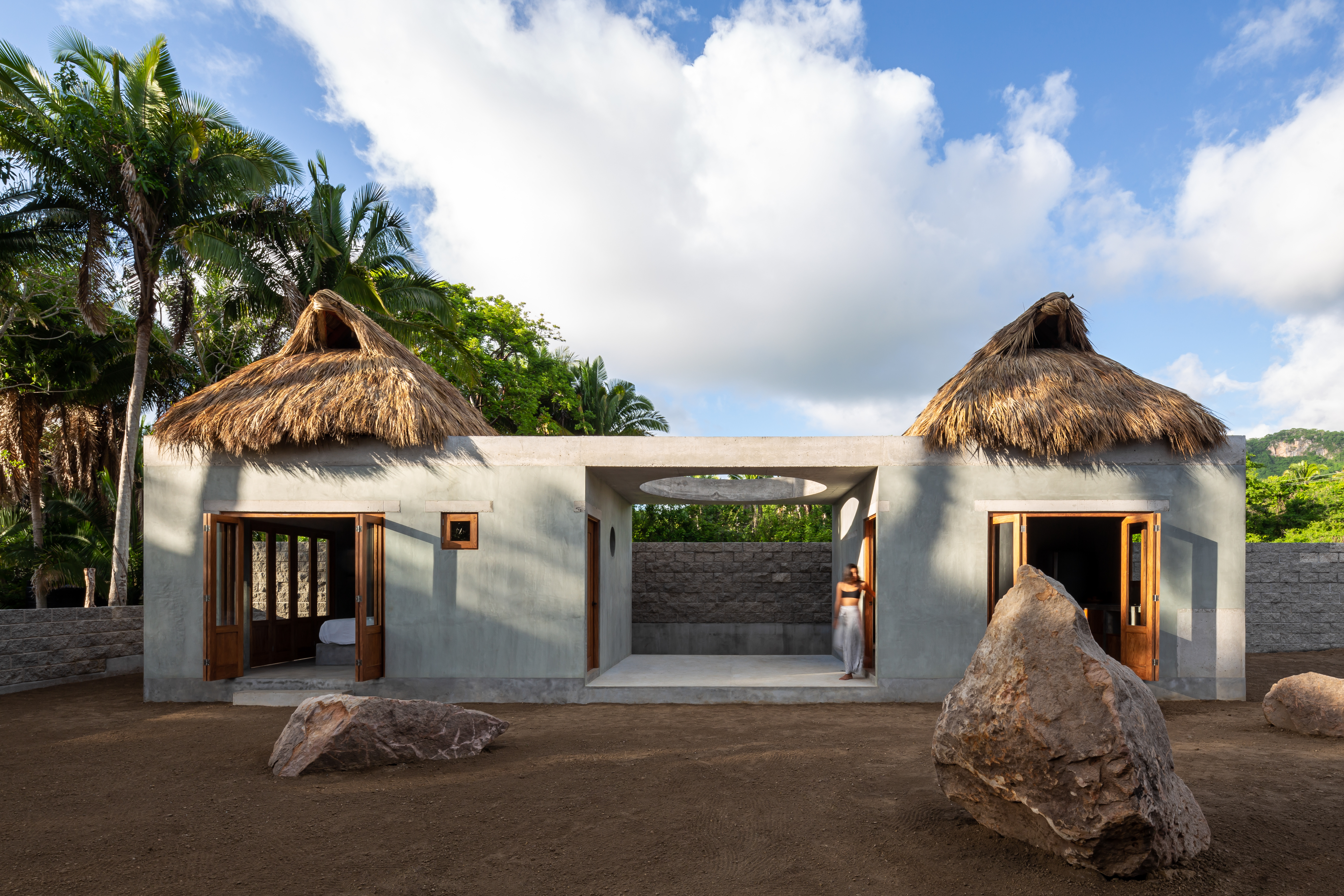 Mexico's Palma stays curious - from sleepy Sayulita to bustling Mexico City
Mexico's Palma stays curious - from sleepy Sayulita to bustling Mexico CityPalma's projects grow from a dialogue sparked by the shared curiosity of its founders, Ilse Cárdenas, Regina de Hoyos and Diego Escamilla
-
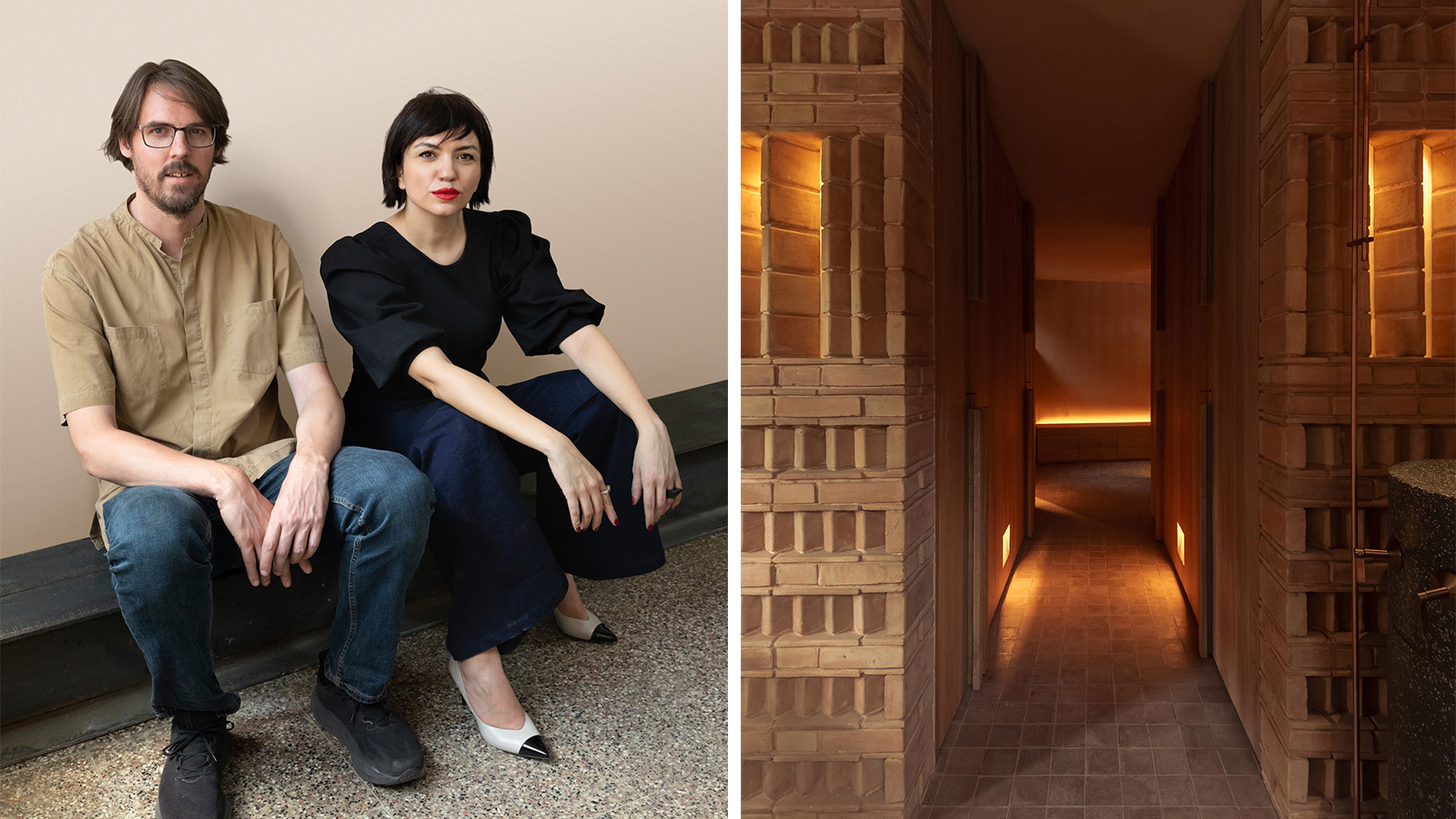 Discover Locus and its ‘eco-localism' - an alternative way of thinking about architecture
Discover Locus and its ‘eco-localism' - an alternative way of thinking about architectureLocus, an architecture firm in Mexico City, has a portfolio of projects which share an attitude rather than an obvious visual language
-
 Deep dive into Carlos H Matos' boundary-pushing architecture practice in Mexico
Deep dive into Carlos H Matos' boundary-pushing architecture practice in MexicoMexican architect Carlos H Matos' designs balance the organic and geometric, figurative and abstract, primitive and futuristic
-
 For Rodríguez + De Mitri, a budding Cuernavaca architecture practice, design is 'conversation’
For Rodríguez + De Mitri, a budding Cuernavaca architecture practice, design is 'conversation’Rodríguez + De Mitri stands for architecture that should be measured, intentional and attentive – allowing both the environment and its inhabitants to breathe
-
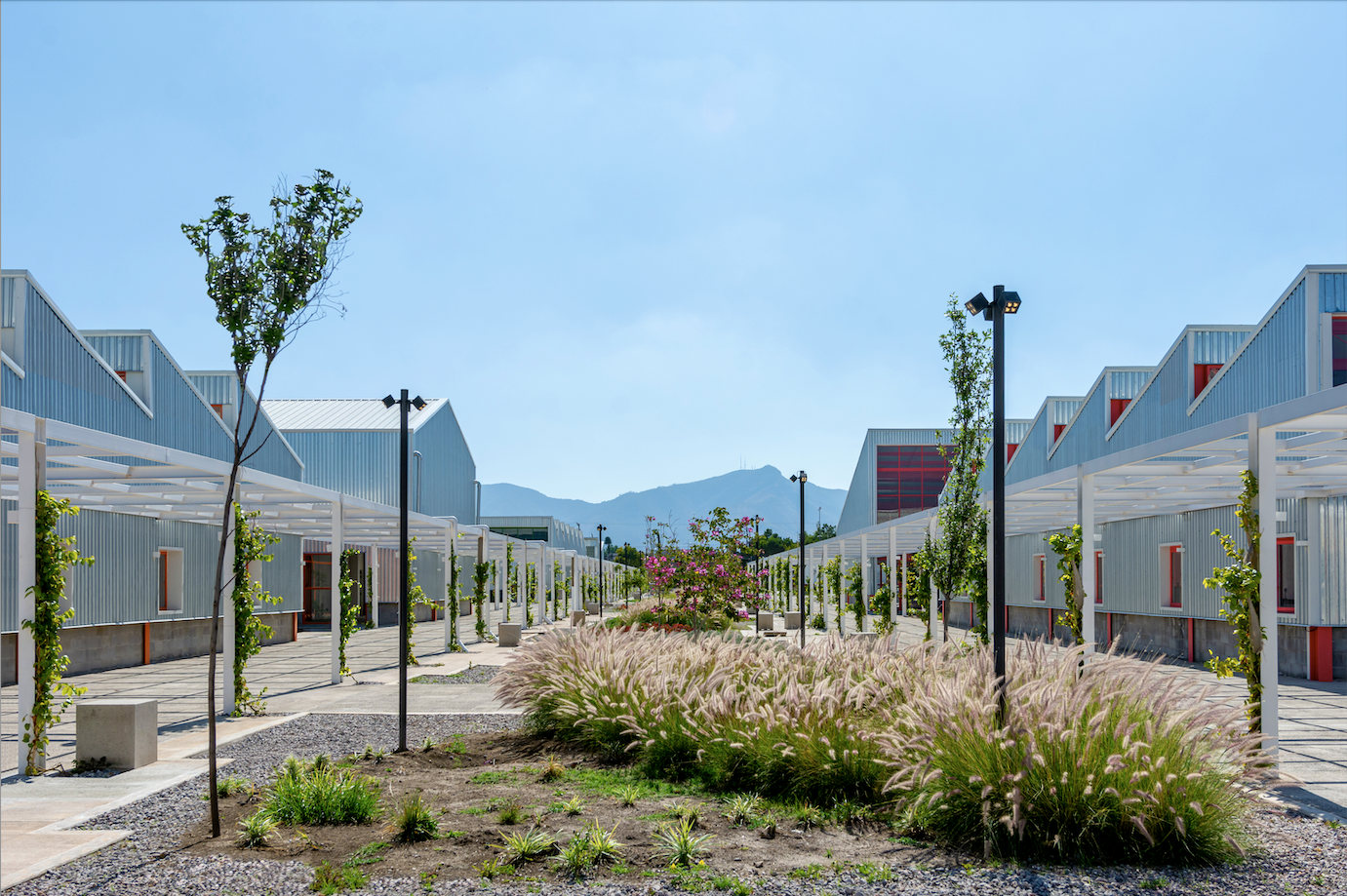 Mexico's Office of Urban Resilience creates projects that cities can learn from
Mexico's Office of Urban Resilience creates projects that cities can learn fromAt Office of Urban Resilience, the team believes that ‘architecture should be more than designing objects. It can be a tool for generating knowledge’
-
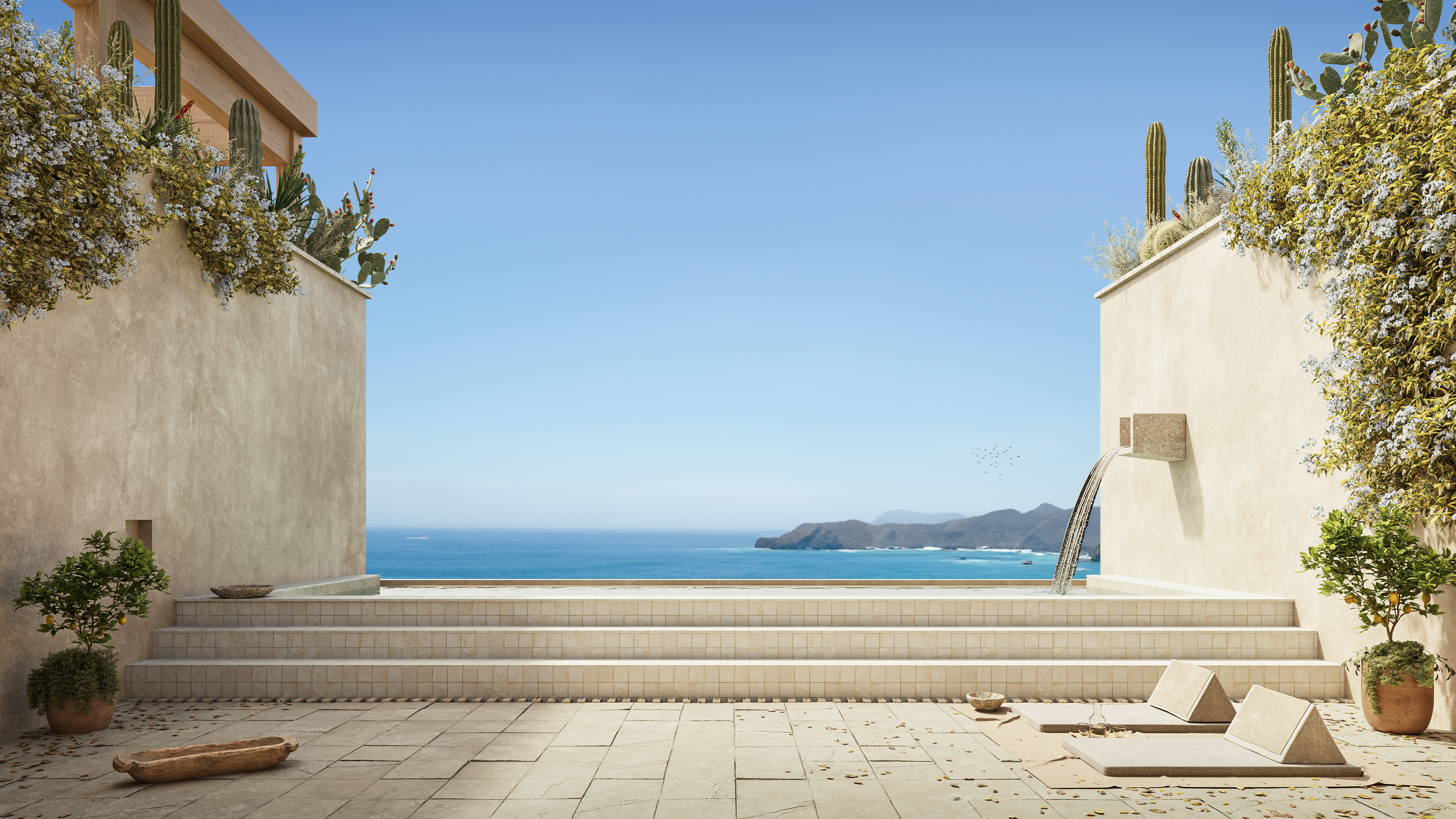 These Guadalajara architects mix modernism with traditional local materials and craft
These Guadalajara architects mix modernism with traditional local materials and craftGuadalajara architects Laura Barba and Luis Aurelio of Barbapiña Arquitectos design drawing on the past to imagine the future
-
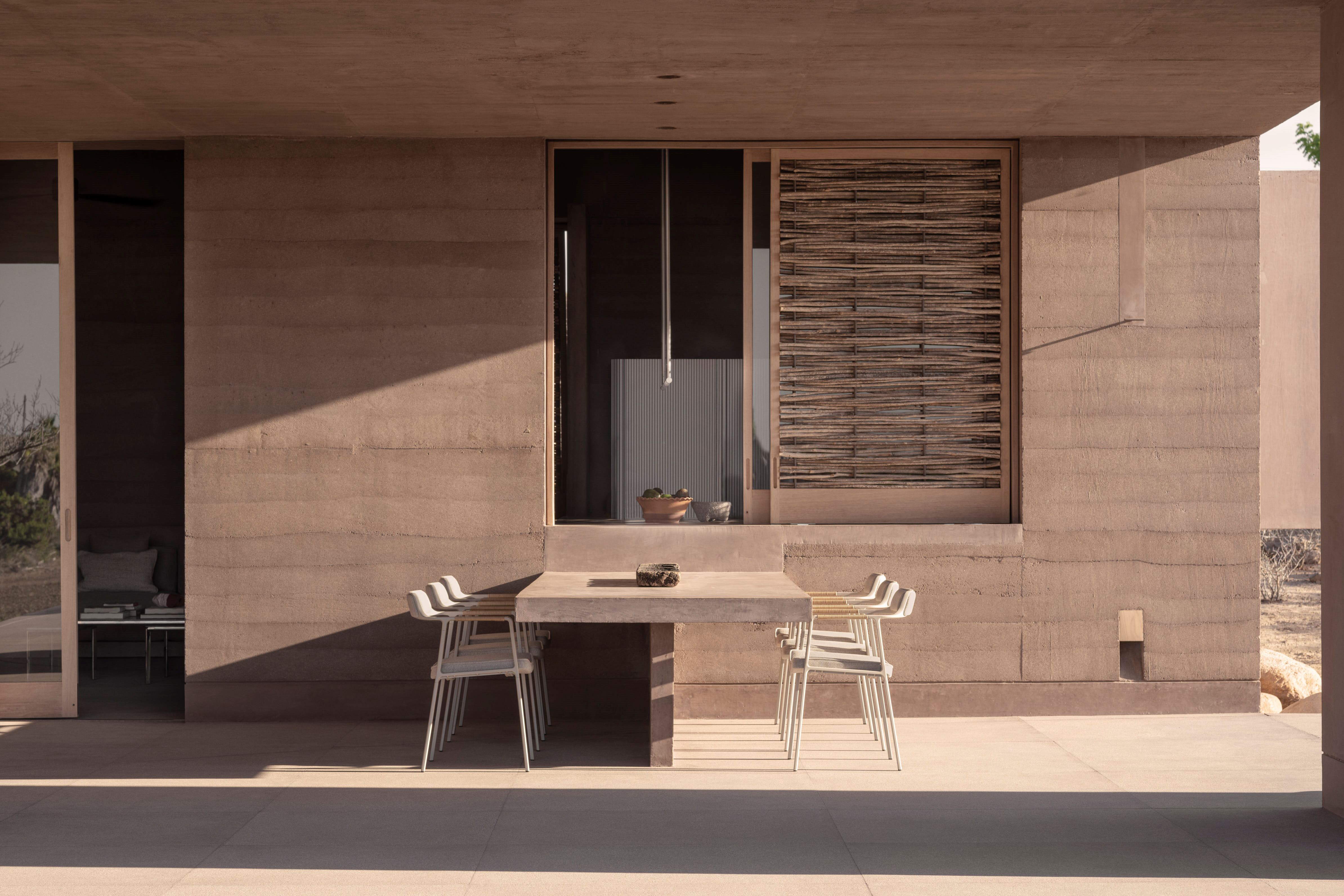 This Mexican architecture studio has a surprising creative process
This Mexican architecture studio has a surprising creative processThe architects at young practice Pérez Palacios Arquitectos Asociados (PPAA) often begin each design by writing out their intentions, ideas and the emotions they want the architecture to evoke